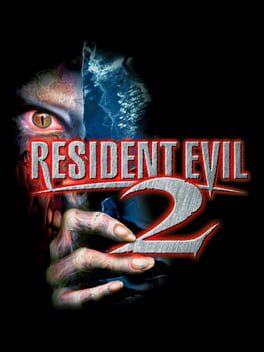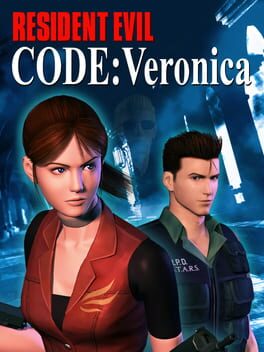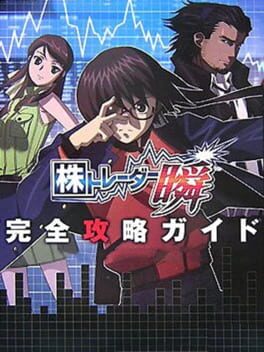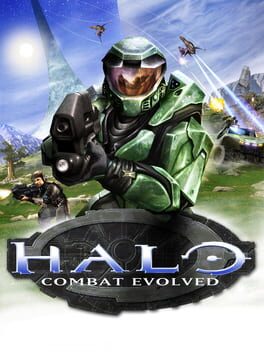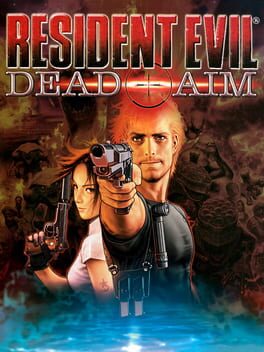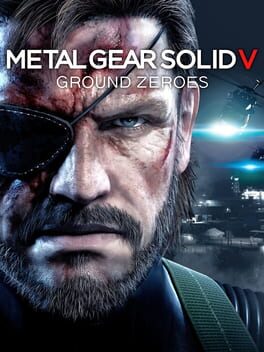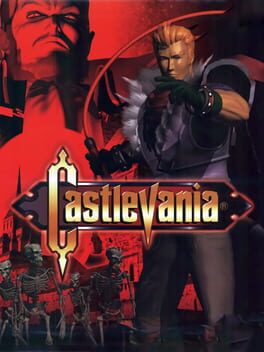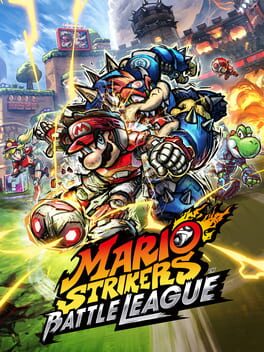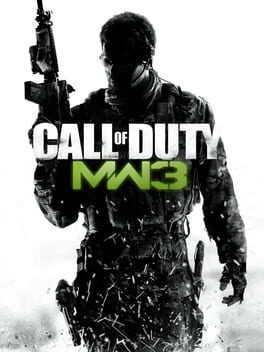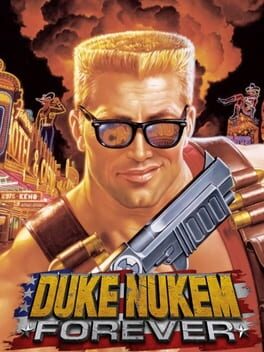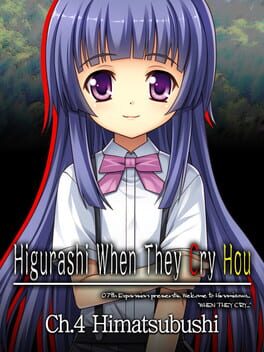Baka_Ouji
85 Reviews liked by Baka_Ouji
Resident Evil 2
1998
"You're right. This is just the beginning."
Peak Gaming.
The 4 minute cinematic at the beginning sold the game for me. It was enough to make me understand the step Resident Evil 2 took in history.
Just like Metal Gear Solid 1 used the PS1's memory card and optimization to blow away a generation, using the save game to unlock the true ending is a good and original addition in my opinion.
I played the remake before I played the original game and I can safely say that I much prefer the 1998 version.
The blooming romance between Leon and Ada made it clear to me that they had taken Resident Evil to the next level. And I LOVE it.
Peak Gaming.
The 4 minute cinematic at the beginning sold the game for me. It was enough to make me understand the step Resident Evil 2 took in history.
Just like Metal Gear Solid 1 used the PS1's memory card and optimization to blow away a generation, using the save game to unlock the true ending is a good and original addition in my opinion.
I played the remake before I played the original game and I can safely say that I much prefer the 1998 version.
The blooming romance between Leon and Ada made it clear to me that they had taken Resident Evil to the next level. And I LOVE it.
Resident Evil 2
1998
The moment that the fixed camera angles really clicked for me was when I got to the Chemical Plant platform, with Claire and Sherry gazing at the full moon in the sky. There were times beforehand where I recognized the added tension of danger being just around an unseen corner, but it was around that scene halfway through the "Claire A" campaign that I appreciated just how cinematic the visual style was as well. It's the unique perspectives that make the locations that much more memorable and the exploration even creepier.
It was the best of times. It was the code Veronica of times. (My score really doesn’t reflect the quality of this game at all btw)
Okay so I attempted to play the ps2 version of this and I literally couldn’t see anything due to the awful brightness so all of this is based on the game running on a Xbox X.
This game has it all
A horrible first two hours that make the game so hard to make any progress in. So many ink ribbons and so little safe rooms, Disgusting bosses, brilliant atmosphere. A great use of the duo protagonists. Agent smith Albert wesker, The hottest Chris redfield, elaborate insect imagery, some enemies that are straight up unfair to fight, a powered up version of the most unfair reoccurring enemy in the series, A whole section built around hammer horror haunted mansion with a hint of queerphobia akin to psycho/dressed to kill, Nosferstu and last but not least incest.
Loved it.
If someone came up to me and said this is one the worst and most unfair games they have ever played I would look them dead in the eyes and say “soooo truuuuue” because they are correct.
Final notes. Gamers hate Steve because he is a mirror. I love Steve.
Okay so I attempted to play the ps2 version of this and I literally couldn’t see anything due to the awful brightness so all of this is based on the game running on a Xbox X.
This game has it all
A horrible first two hours that make the game so hard to make any progress in. So many ink ribbons and so little safe rooms, Disgusting bosses, brilliant atmosphere. A great use of the duo protagonists. Agent smith Albert wesker, The hottest Chris redfield, elaborate insect imagery, some enemies that are straight up unfair to fight, a powered up version of the most unfair reoccurring enemy in the series, A whole section built around hammer horror haunted mansion with a hint of queerphobia akin to psycho/dressed to kill, Nosferstu and last but not least incest.
Loved it.
If someone came up to me and said this is one the worst and most unfair games they have ever played I would look them dead in the eyes and say “soooo truuuuue” because they are correct.
Final notes. Gamers hate Steve because he is a mirror. I love Steve.
Resident Evil 2
2019
Resident Evil 2 Remake has an equally terrifying atmosphere as the original Resident Evil 2. However, it's disheartening that the B side is practically the same as the A side, with only the story changing. I liked some changes, such as Ada's reason for being there and her relationship development with Leon. However, I still find the original storyline's direction much more impactful than the remake. The gameplay is good but not impressive. I think the best thing I can praise is Mr. X. The fear I felt hearing his footsteps approaching was the greatest I experienced in the entire game.
Kabu Trader Shun
2007
Halo: Combat Evolved
2001
What if the US occupation of Afghanistan but the Taliban are aliens who only communicate with grunts/guttural laughter/high-pitched Flea in THE WILD THORNBERRYS gibbering, and Afghanistan itself is the weapon of mass destruction, and it's all of the worst aspects of ALIENS (which is most of ALIENS) and none of the good but with zombies, and we just make everything after "The Silent Cartographer" a beyond tedious grind with copy-pasted corridors so we can shove this thing out the door on time.
tl;dr JockJamz MARATHON, or the BIOSHOCK to that game's SYSTEM SHOCK. Some interesting/compelling production design and gameplay dynamics throughout (hopping in a Warthog with a buddy is all-time and the assault rifle feels great) but otherwise utterly fucking dire even when playing co-op with a friend, not to mention grossly jingoistic and racist without the polish or design muscle to make it worth fucking with. Just skip to the sequel imho.
tl;dr JockJamz MARATHON, or the BIOSHOCK to that game's SYSTEM SHOCK. Some interesting/compelling production design and gameplay dynamics throughout (hopping in a Warthog with a buddy is all-time and the assault rifle feels great) but otherwise utterly fucking dire even when playing co-op with a friend, not to mention grossly jingoistic and racist without the polish or design muscle to make it worth fucking with. Just skip to the sequel imho.
Strongest and most consistent atmosphere in the series besides RE1. The sound design, heralded by none other than Nobuyoshi Sano himself is nothing short of masterful and haunting, ambience and subtlety are a horror strength oft ignored. What’s already there visually is incredible on its own but with a man of his talent enhancing it through meticulous sound design? Holy shit. I thought the story was alright, it’s mostly carried by its setting and being short and cohesive, the relationship between Bruce and Fongling was neat. The light-gun gameplay mixed into third person was refreshing and fun, i really wish there was more of this. Awesome game overall.
“A “Don-Gua” never abandons a woman.”
“A “Don-Gua” never abandons a woman.”
The most anti-American game ever made.
Kojima charged Americans $30 to play through a guided tour of Guantanamo Bay that ends with a shot-for-shot recreation of 9/11 - except America is doing it. I mean look at this fucking shot. It's unmistakable.
Kojima charged Americans $30 to play through a guided tour of Guantanamo Bay that ends with a shot-for-shot recreation of 9/11 - except America is doing it. I mean look at this fucking shot. It's unmistakable.
Castlevania
1999
I'm mad. I'm so mad. People have been Lying about this game for over two decades and I fucking believed them, like a fucking idiot. I'm so dumb.
THIS GAME IS BETTER THAN DMC 1 AND IS BY FAR THE BEST N64 GAME, PROBABLY THE BEST 5TH GEN ACTION GAME, PERIOD. The action has a good range of options that all feel appropriately weighty, The movement and platforming have a nice sense of speed while still being brutal and tight like the OG games, and the quest design is god tier for its time, at least in the console space.
Why did you do this internet. Why. I am LIVID. Holy shit.
THIS GAME IS BETTER THAN DMC 1 AND IS BY FAR THE BEST N64 GAME, PROBABLY THE BEST 5TH GEN ACTION GAME, PERIOD. The action has a good range of options that all feel appropriately weighty, The movement and platforming have a nice sense of speed while still being brutal and tight like the OG games, and the quest design is god tier for its time, at least in the console space.
Why did you do this internet. Why. I am LIVID. Holy shit.
The game is fun but there is NO content. We've been complaining about the lack of content for the last few Mario sports games, but I don't think it's ever been this bad. Aces and Super Rush at least had attempts at adventure modes, as superficial as they were.
The only single player content Battle League has outside of exhibition matches are cup battles, six cup tournaments where you face teams that excel in a certain attribute (shooting, passing, speed, etc.) The average match length is four minutes, and these cups have three matches each if you go all the way. There's also an online mode called Strikers Club, which is Mario’s take on FIFA’s pro clubs, however, I am yet to try this out considering not a single soul I know owns this game.
There's a fair amount of depth to the gameplay that keeps it entertaining. I particularly like how imperfect the goalkeepers are, and the gear system means that playing around with different team comps can be fulfilling, but all of this is for naught when there are only two unique modes to experiment in.
In a world lacking in tennis games, Aces was more than good enough to fill that void. But in a world where FIFA exists, Next Level Games have given me no reason to keep playing this.
The only single player content Battle League has outside of exhibition matches are cup battles, six cup tournaments where you face teams that excel in a certain attribute (shooting, passing, speed, etc.) The average match length is four minutes, and these cups have three matches each if you go all the way. There's also an online mode called Strikers Club, which is Mario’s take on FIFA’s pro clubs, however, I am yet to try this out considering not a single soul I know owns this game.
There's a fair amount of depth to the gameplay that keeps it entertaining. I particularly like how imperfect the goalkeepers are, and the gear system means that playing around with different team comps can be fulfilling, but all of this is for naught when there are only two unique modes to experiment in.
In a world lacking in tennis games, Aces was more than good enough to fill that void. But in a world where FIFA exists, Next Level Games have given me no reason to keep playing this.
So, Russia attacks Europe in MW3. All of Europe. At once. It's easy to dunk on the game for this major contrivance - a lot of people have, after all, it's one of the most commonly brought-up complaints about MW3's plot. But it is fucking insane, the idea that Russia can mobilize entire armored divisions across Europe just like that, especially since they spent a lot of time getting their asses kicked in COD4 and in MW2, the latter of which featured a Russian invasion on America.
There is no fucking way they'd have that many usable resources after losing so frequently. If this was an alternate reality where Russia had conquered a lot of territory and thus had control of those conquered territories' military power & supplies, MW3's plot would be (slightly) more believable, but somehow, someway, we have to suspend our disbelief and buy into the notion that a country that's lost two incredibly scandalous wars is somehow stable and powerful enough to invade the entirety of Europe. And also America. Again. And it just doesn't work. It doesn't work in isolation (the strategy of 'invade all of Europe simultaneously' would be the tactical blunder of the fucking millennium) and it doesn't work in context to the larger narrative. Russia should barely be scraping by, especially since their ICBMs were destroyed in COD4 and their spontaneous war against America didn't work at all, not to mention the fact that not every Russian supports Makarov's plans, to the point where the literal President of Russia wants Makarov stopped and there's an entire faction of anti-Ultranationalist rebels that want Makarov stopped. It's so stupid that even the average player might be able to pick up on just how outlandish Makarov's plan in this game really is.
At least Price and Soap's side of the story is engaging as per usual. Seeing them struggle to hunt down and kill Makarov is genuinely the only cool part of a bloated story - once again, for the third time in a row, the plot only starts working whenever the Brits are involved. It's cool seeing their supplies dwindle over the course of the game, Soap's death is a decent moment all around, and Price's final spat with Makarov is a great way to cap off their rivalry. Honestly, if MW3's campaign had just been an expansion pack DLC to MW2, featuring like nine or ten missions of Price and co. wrapping up loose ends with Makarov, I'd have been satisfied. The plot works when it hones in on the disavowed Task Force 141 and not the stupid ass WW3 narrative.
Wish I could say the rest of the game is quite as fun as the Price and Soap stuff. The shooting feels pretty good and there's a nice variety of weapons, but there's a strange lack of immediacy and punch to the weapons and shooting in MW3. It's not bad or anything, but I feel like the weapons aren't as explosive or attention-grabbing as they were in MW2. Maybe it's a sound design issue. The multiplayer is fine, I guess. It's pretty unmemorable across the board, especially when it comes to overall map design, but to be fair, it had to compete with MW2, a game whose multiplayer literally defined an entire generation of gamers and revitalized the entire industry of multiplayer gaming. Anything after that would feel a bit... lesser. I do enjoy the co-op and especially survival mode quite a bit, though - I think the co-op elements of MW3 are the best aspects of the game. This game becomes a lot more fun playing survival with a friend. It ain't quite Nazi Zombies, but it's pretty damn fine in its own right.
The problem is that everything MW3 tries to do, barring the co-op, just feels like a less effective version of the stuff that worked in COD4 and MW2. The story is contrived and genuinely themeless this time around, the shooting feels bland compared to MW2's god-maker gameplay, the multiplayer map design is pretty mid across the board, and there's a feeling of pointlessness that kind of sinks its way into the entire game, a distinctive lack of that spark and inspiration that made COD4 & MW2 such genre-defining games to begin with. MW3 just feels like another functional shooter, and by the standards of the two excellent games that came before it, that's hardly anything to write home about.
All of Europe. Simultaneously. How, man?
There is no fucking way they'd have that many usable resources after losing so frequently. If this was an alternate reality where Russia had conquered a lot of territory and thus had control of those conquered territories' military power & supplies, MW3's plot would be (slightly) more believable, but somehow, someway, we have to suspend our disbelief and buy into the notion that a country that's lost two incredibly scandalous wars is somehow stable and powerful enough to invade the entirety of Europe. And also America. Again. And it just doesn't work. It doesn't work in isolation (the strategy of 'invade all of Europe simultaneously' would be the tactical blunder of the fucking millennium) and it doesn't work in context to the larger narrative. Russia should barely be scraping by, especially since their ICBMs were destroyed in COD4 and their spontaneous war against America didn't work at all, not to mention the fact that not every Russian supports Makarov's plans, to the point where the literal President of Russia wants Makarov stopped and there's an entire faction of anti-Ultranationalist rebels that want Makarov stopped. It's so stupid that even the average player might be able to pick up on just how outlandish Makarov's plan in this game really is.
At least Price and Soap's side of the story is engaging as per usual. Seeing them struggle to hunt down and kill Makarov is genuinely the only cool part of a bloated story - once again, for the third time in a row, the plot only starts working whenever the Brits are involved. It's cool seeing their supplies dwindle over the course of the game, Soap's death is a decent moment all around, and Price's final spat with Makarov is a great way to cap off their rivalry. Honestly, if MW3's campaign had just been an expansion pack DLC to MW2, featuring like nine or ten missions of Price and co. wrapping up loose ends with Makarov, I'd have been satisfied. The plot works when it hones in on the disavowed Task Force 141 and not the stupid ass WW3 narrative.
Wish I could say the rest of the game is quite as fun as the Price and Soap stuff. The shooting feels pretty good and there's a nice variety of weapons, but there's a strange lack of immediacy and punch to the weapons and shooting in MW3. It's not bad or anything, but I feel like the weapons aren't as explosive or attention-grabbing as they were in MW2. Maybe it's a sound design issue. The multiplayer is fine, I guess. It's pretty unmemorable across the board, especially when it comes to overall map design, but to be fair, it had to compete with MW2, a game whose multiplayer literally defined an entire generation of gamers and revitalized the entire industry of multiplayer gaming. Anything after that would feel a bit... lesser. I do enjoy the co-op and especially survival mode quite a bit, though - I think the co-op elements of MW3 are the best aspects of the game. This game becomes a lot more fun playing survival with a friend. It ain't quite Nazi Zombies, but it's pretty damn fine in its own right.
The problem is that everything MW3 tries to do, barring the co-op, just feels like a less effective version of the stuff that worked in COD4 and MW2. The story is contrived and genuinely themeless this time around, the shooting feels bland compared to MW2's god-maker gameplay, the multiplayer map design is pretty mid across the board, and there's a feeling of pointlessness that kind of sinks its way into the entire game, a distinctive lack of that spark and inspiration that made COD4 & MW2 such genre-defining games to begin with. MW3 just feels like another functional shooter, and by the standards of the two excellent games that came before it, that's hardly anything to write home about.
All of Europe. Simultaneously. How, man?
God of War
2018
This review contains spoilers
No wonder the so-called best game of all-time elected by IGN readers would be the ultimate zelda shirt cargo shorts choice. God of War is pretty damn well made and no part of it is painfully mediocre, it's likely one of the more enjoyable games I played in the past 12 months.
It's also the most committee designed products I experienced in years, grabbing onto every single "prestige" gaming trend of 7th-8th console generation. What's the most popular mythological setting right now? Oh, let's have Kratos immigrate to Skyrim. Last of Us invented storytelling? Then Kratos must not be able to put his hand on boy's shoulder until character development kicks in. Wait, air juggling is cool again? Then there must be a simple launcher with a 3-button combo that can keep an enemy in the air. Does gear system even make sense in our action game? Fuck it, let there be loot. This goes on and on, reading other reviews on this page would leave you with a sizeable checklist of stuff borrowed from other games. No wonder game's most exciting and popular sequence is when you get chainswords back. For a moment, nu-GoW stops being everything and with ceremonial fanfare remembers what it's like to be something! Even a sparkle of personality seems like hearthfire.
Overall I come from this game award winning action adventure hack-and-slash title with empty head. It's pretty good, not once I felt bored or not engaged enough. I won't recall a single thing from it in a week.
It's also the most committee designed products I experienced in years, grabbing onto every single "prestige" gaming trend of 7th-8th console generation. What's the most popular mythological setting right now? Oh, let's have Kratos immigrate to Skyrim. Last of Us invented storytelling? Then Kratos must not be able to put his hand on boy's shoulder until character development kicks in. Wait, air juggling is cool again? Then there must be a simple launcher with a 3-button combo that can keep an enemy in the air. Does gear system even make sense in our action game? Fuck it, let there be loot. This goes on and on, reading other reviews on this page would leave you with a sizeable checklist of stuff borrowed from other games. No wonder game's most exciting and popular sequence is when you get chainswords back. For a moment, nu-GoW stops being everything and with ceremonial fanfare remembers what it's like to be something! Even a sparkle of personality seems like hearthfire.
Overall I come from this game award winning action adventure hack-and-slash title with empty head. It's pretty good, not once I felt bored or not engaged enough. I won't recall a single thing from it in a week.
The true reveal of Metal Gear Solid 2 is not that we play as Raiden instead of Solid Snake - it's that the antagonist of the game does not exist. It's pulling back the curtain to find that the man behind it died a century ago. The most powerful nation on Earth is essentially an algorithm with a mind of its own, akin to a runaway train that everyone "in charge" pretends they are responsible for. There is no individual you get to blame. Not the politicians, not the CEOs of major corporations. Not even the current or former presidents of the United States have any idea of what's really going on. The algorithm will replace these people the second they stop being useful. In my opinion it's a much better conception of "the system" than what you see in most conspiracy fiction: a small, shadowy cabal of people pulling the strings from behind the scenes. The reality is that all of the powerful people we blame are just the ones who managed to latch on to the algorithm of capitalism and milk it for all they can. There is no grand design, nobody is in control, everyone responsible for setting this system into motion is long dead. Which is why Otacon says the Patriots "have been dead for 100 years".
Every choice you (and Raiden) make perpetuates this status quo, and every radical political cause (like Snake and Otacon's 'Philanthropy') is effortlessly co-opted by it. MGS2 conveys this idea in a way that only a video game could: By playing as Raiden, you are forced to directly confront the futility of any resistance. You can approach MGS2 in a million different ways with an expansive arsenal of tools, getting no kills or alerts and discovering every secret in the Big Shell, or do the exact opposite. But the end result is always the same: You kill Solidus, the only threat to the Patriots, after they explicitly tell you it's exactly what they want. If you opt out entirely and "turn the game console off" you're still doing something you were ordered to do. Even if you choose not to play, you lose to the Patriots. MGS2 places you in the position of the post-information age, digital subject: Imbued with detailed knowledge of every single way you are being oppressed and exploited, you still choose to follow orders. You are so overwhelmed by information, some true, some false, that is causes a kind of exasperated compliance.
This is simultaneously a commentary on the nature of video game stories as an immutable, pre-programmed series of events not as different from film narratives as we like to think; Any "choice" is always an illusion, whether it's in Metal Gear Solid or a Telltale game. Any game that sets out to fulfill the concept of "player freedom" in its story will always fail. Video games stories are (at their best) about interactivity, not choice. They let you play out a pre-ordained role and do some improvisation, not write the story. Kojima understands this, and it's why he borrows so much from film. It's also why the criticism that his games are too much like movies is kind of pointless; he's just recognizing the inherent similarities of the two mediums.
On a less meta level, this lack of free will in MGS2 underscores the reality that capitalism, American empire, the very norms and values of American society, whatever the antagonist of the game is - cannot be destroyed from within. It is a system that has achieved self-awareness. Any possible attempt to destroy it has already been anticipated with an infinite number of contingencies. Emma Emmerich gave her life to destroy the GW AI and it was just replaced with a backup. The battle has already been lost, and it was decided by a microscopic processor in a fraction of a second. Solidus (a perfect stand-in for the kind of right-wing populist we wouldn't see for awhile in 2001) was the only person in power trying to oppose the Patriots, but his fatal mistake was believing that the Patriots were essentially a deep state globalist cabal, rather than the nigh omnipresent force they really are (they aren't really a "they", but an "it"). Like Snake said, "the Patriots are a kind of ongoing fiction". But even the legendary Solid Snake, the archetypal hero who opposes the system with clear-eyed determination, is completely dumbfounded after the credits roll.
And that's because this enemy is simply beyond the abilities of one man, even if that man is a Snake. It can just create its own soldier to surpass Solid(us) Snake and even mass-produce them, and your actions throughout the game prove it. No tactical espionage action can defeat what is essentially an idea - one that has infiltrated the furthest depths of the human soul. The only hope lies on a society-wide level: An alternative has to be built by everyone from the ground up, through finding what is true and meaningful in life and passing it on to the next generation. Slowly, generation by generation, an alternative capable of opposing the great algorithm can be built. And it has to be one that people can have faith in, in a spiritual sense.
But the encroachment of the internet into our lives is making this less and less feasible. By replacing the traditional nuclear-armed metal gear with Arsenal Gear, an AI that controls the internet, Kojima is essentially framing the internet itself as a threat equal to or greater than that of nuclear weapons. It is an instrument of human separation much more powerful than the splitting of an atom. The quote at the beginning of Raiden's chapter tying computers and nuclear weapons together bolsters this interpretation.
The digital age has turned human life into a scrambled mess that is impossible to parse. We create entirely idiosyncratic, patchwork realities for ourselves by finding various "truths" through our own individual exploration of the internet and jury-rigging them together. We relate to each other less and less, and mental illness is widespread. This overload of information makes us increasingly neurotic, isolated, and unable to determine truth from fiction. The collective human mind is being broken (or at least pounded into a new shape) against the collective neuroses of the internet, and nobody knows what to do about it. We're all alone right now, each of us left with the isolating task of finding our own truth amidst the cacophony. Even the algorithm fears for our future, yet it's still the only entity with a solution: Censorship. Make the noise stop. Honestly, has anyone thought of a better idea?
Every choice you (and Raiden) make perpetuates this status quo, and every radical political cause (like Snake and Otacon's 'Philanthropy') is effortlessly co-opted by it. MGS2 conveys this idea in a way that only a video game could: By playing as Raiden, you are forced to directly confront the futility of any resistance. You can approach MGS2 in a million different ways with an expansive arsenal of tools, getting no kills or alerts and discovering every secret in the Big Shell, or do the exact opposite. But the end result is always the same: You kill Solidus, the only threat to the Patriots, after they explicitly tell you it's exactly what they want. If you opt out entirely and "turn the game console off" you're still doing something you were ordered to do. Even if you choose not to play, you lose to the Patriots. MGS2 places you in the position of the post-information age, digital subject: Imbued with detailed knowledge of every single way you are being oppressed and exploited, you still choose to follow orders. You are so overwhelmed by information, some true, some false, that is causes a kind of exasperated compliance.
This is simultaneously a commentary on the nature of video game stories as an immutable, pre-programmed series of events not as different from film narratives as we like to think; Any "choice" is always an illusion, whether it's in Metal Gear Solid or a Telltale game. Any game that sets out to fulfill the concept of "player freedom" in its story will always fail. Video games stories are (at their best) about interactivity, not choice. They let you play out a pre-ordained role and do some improvisation, not write the story. Kojima understands this, and it's why he borrows so much from film. It's also why the criticism that his games are too much like movies is kind of pointless; he's just recognizing the inherent similarities of the two mediums.
On a less meta level, this lack of free will in MGS2 underscores the reality that capitalism, American empire, the very norms and values of American society, whatever the antagonist of the game is - cannot be destroyed from within. It is a system that has achieved self-awareness. Any possible attempt to destroy it has already been anticipated with an infinite number of contingencies. Emma Emmerich gave her life to destroy the GW AI and it was just replaced with a backup. The battle has already been lost, and it was decided by a microscopic processor in a fraction of a second. Solidus (a perfect stand-in for the kind of right-wing populist we wouldn't see for awhile in 2001) was the only person in power trying to oppose the Patriots, but his fatal mistake was believing that the Patriots were essentially a deep state globalist cabal, rather than the nigh omnipresent force they really are (they aren't really a "they", but an "it"). Like Snake said, "the Patriots are a kind of ongoing fiction". But even the legendary Solid Snake, the archetypal hero who opposes the system with clear-eyed determination, is completely dumbfounded after the credits roll.
And that's because this enemy is simply beyond the abilities of one man, even if that man is a Snake. It can just create its own soldier to surpass Solid(us) Snake and even mass-produce them, and your actions throughout the game prove it. No tactical espionage action can defeat what is essentially an idea - one that has infiltrated the furthest depths of the human soul. The only hope lies on a society-wide level: An alternative has to be built by everyone from the ground up, through finding what is true and meaningful in life and passing it on to the next generation. Slowly, generation by generation, an alternative capable of opposing the great algorithm can be built. And it has to be one that people can have faith in, in a spiritual sense.
But the encroachment of the internet into our lives is making this less and less feasible. By replacing the traditional nuclear-armed metal gear with Arsenal Gear, an AI that controls the internet, Kojima is essentially framing the internet itself as a threat equal to or greater than that of nuclear weapons. It is an instrument of human separation much more powerful than the splitting of an atom. The quote at the beginning of Raiden's chapter tying computers and nuclear weapons together bolsters this interpretation.
The digital age has turned human life into a scrambled mess that is impossible to parse. We create entirely idiosyncratic, patchwork realities for ourselves by finding various "truths" through our own individual exploration of the internet and jury-rigging them together. We relate to each other less and less, and mental illness is widespread. This overload of information makes us increasingly neurotic, isolated, and unable to determine truth from fiction. The collective human mind is being broken (or at least pounded into a new shape) against the collective neuroses of the internet, and nobody knows what to do about it. We're all alone right now, each of us left with the isolating task of finding our own truth amidst the cacophony. Even the algorithm fears for our future, yet it's still the only entity with a solution: Censorship. Make the noise stop. Honestly, has anyone thought of a better idea?
This review contains spoilers
Chapter 4 of Higurashi is a weird addition to the story, especially after directly following Chapter 3, the grittiest of them so far. It’s also the first chapter to not be from keiichi’s perspective, let alone also being set 5 years before the other chapters.
This chapter is headed by Akasaka, a fresh Cop from Tokyo. His objective is to find the Ministry of Constructions’ missing Grandson. While his colleagues look into high profile criminals and Yakuza, his job is to go to a small town and look into a family and town, who potentially kidnapped him to stop the construction of a dam, which would flood their town. It is of course Hinamizawa, the town Higurashi takes place in.
While undercover in Hinamizawa, he meets a young(er) Rika, who takes him on a tour of the town. At the end of their tour, Rika omminuously tells him to go back to Tokyo. The reader and Akasaka both think both RIka and the rest of the town have discovered his identity, and he is on edge about it for most of the story.
The comment from Rika leads into the best arc of the chapter, with her continuously giving hints and ominous messages, culminating with her cutting local phone lines while Akasaka is trying to call his pregnant wife. This is supposed to lead you to the conclusion that Rika is more involved in the town's crimes than the other chapters had made you believe.
This is then revealed to not be the case, and it is instead Rika having cognitive abilities, with the ability to see the future, somehow. Its mechanics aren’t explained in the chapter, or how she gained the ability. RIka then reveals all the people that will die to the curse, in each year, ending in her own death in 1983. After this, Akasaka finds out that his heavily pregnant wife had slipped and died the night Rika cut the phone lines. It is assumed that Rika cut the lines so that she would be able to tell him about her own death before he fell into despair about his wife. Rika doing this comes across as a call for help.
The story then skips a number of years ahead. With Ooishi and Akasaka reminiscing on the time he spent in Hinamizawa and Akasaka realising that Rika told him about her death because she wanted him to help her, he never did. Akasaka and Ooishi then agree to investigate the curse and gas eruption that killed the entire town (chapter 3 ending), labelling their investigation, Higurashi: When They Cry
This chapter was a drop in quality compared to the other 3 before it. It had some good moments with RIka’s power, and the realisation that Rika was doing all the weird stuff to try and save Akasaka’s wife. This chapter does well at what it attempts, which is to give an insight into the dam conflict and RIka as a character. If i’m correct, it’s also a Chapter to set up a reveal later with Rika, allowing the reader to dwell on Rika’s powers for a while before an explanation is given.
The change in protagonist was refreshing, but almost too much. Having an inner monologue that isn’t Keiichi’s is nice, but the shining moments of Higurashi usually involve him, so it’s hard to have compelling moments without him.
I think what this chapter does best over anything else is make Ooishi shine. He’s a strong character in chapters 1-3, but he’s a cunt in all of them. Seeing him do police work without bullying kids for once was nice, and he was very compelling working with Akasaka.
This chapter is headed by Akasaka, a fresh Cop from Tokyo. His objective is to find the Ministry of Constructions’ missing Grandson. While his colleagues look into high profile criminals and Yakuza, his job is to go to a small town and look into a family and town, who potentially kidnapped him to stop the construction of a dam, which would flood their town. It is of course Hinamizawa, the town Higurashi takes place in.
While undercover in Hinamizawa, he meets a young(er) Rika, who takes him on a tour of the town. At the end of their tour, Rika omminuously tells him to go back to Tokyo. The reader and Akasaka both think both RIka and the rest of the town have discovered his identity, and he is on edge about it for most of the story.
The comment from Rika leads into the best arc of the chapter, with her continuously giving hints and ominous messages, culminating with her cutting local phone lines while Akasaka is trying to call his pregnant wife. This is supposed to lead you to the conclusion that Rika is more involved in the town's crimes than the other chapters had made you believe.
This is then revealed to not be the case, and it is instead Rika having cognitive abilities, with the ability to see the future, somehow. Its mechanics aren’t explained in the chapter, or how she gained the ability. RIka then reveals all the people that will die to the curse, in each year, ending in her own death in 1983. After this, Akasaka finds out that his heavily pregnant wife had slipped and died the night Rika cut the phone lines. It is assumed that Rika cut the lines so that she would be able to tell him about her own death before he fell into despair about his wife. Rika doing this comes across as a call for help.
The story then skips a number of years ahead. With Ooishi and Akasaka reminiscing on the time he spent in Hinamizawa and Akasaka realising that Rika told him about her death because she wanted him to help her, he never did. Akasaka and Ooishi then agree to investigate the curse and gas eruption that killed the entire town (chapter 3 ending), labelling their investigation, Higurashi: When They Cry
This chapter was a drop in quality compared to the other 3 before it. It had some good moments with RIka’s power, and the realisation that Rika was doing all the weird stuff to try and save Akasaka’s wife. This chapter does well at what it attempts, which is to give an insight into the dam conflict and RIka as a character. If i’m correct, it’s also a Chapter to set up a reveal later with Rika, allowing the reader to dwell on Rika’s powers for a while before an explanation is given.
The change in protagonist was refreshing, but almost too much. Having an inner monologue that isn’t Keiichi’s is nice, but the shining moments of Higurashi usually involve him, so it’s hard to have compelling moments without him.
I think what this chapter does best over anything else is make Ooishi shine. He’s a strong character in chapters 1-3, but he’s a cunt in all of them. Seeing him do police work without bullying kids for once was nice, and he was very compelling working with Akasaka.
